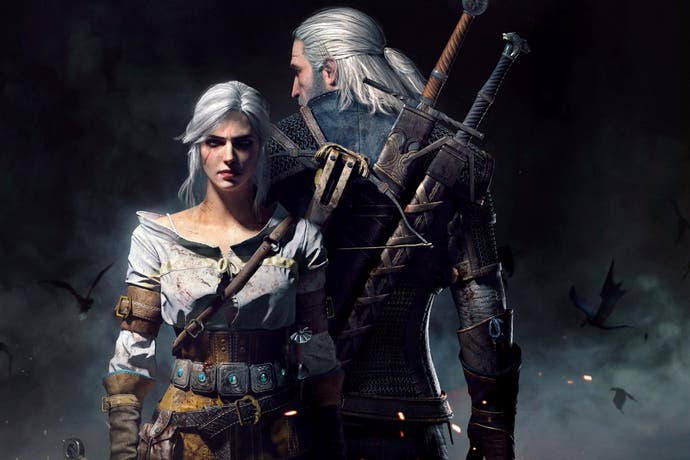Does The Witcher 3 on PS4 Pro deliver a top-tier 4K experience?
And is performance better or worse than base hardware?
First it wasn't happening at all, but now it's a reality. The Witcher 3's PS4 Pro patch 1.51 landed this week, finally giving us that coveted 4K support, and what CD Project Red describes as a slight performance boost. It's a tiny update in size - just over 100MB - but the impact is huge for PS4 Pro owners. To what extent is 4K delivered with the update, how does it stack up against the base PS4 version, and what do 1080p display users get from the deal? And finally, how does the new code compare with the full fat PC experience?
We can confirm our first report in terms of basic image quality - what you get on PS4 Pro is 2160p image, achieved through checkerboard rendering. Technically, the console is rendering out half the number of pixels compared to a true 4K image - essentially 1920x2160. Horizontal resolution is cut, and the result is a little blurrier than you might expect from the real deal. However, PS4 Pro's checkerboard technique attempts to mitigate the quality loss using pixel information from the previous frame - and in a still screenshot, it creates a respectable illusion of a full 3840x2160.
The end really justifies the means, and PS4 Pro looks visibly sharper, cleaner than a regular PS4 image at a native 1080p - the one caveat being that motion blur shouldn't be disabled. Doing so unravels the effect just a tad and image integrity can be compromised, noticeable on high contrast edges. Downsampling on Pro for 1080p users looks great meanwhile: in fact, a standard PS4 looks almost raw and lacking in anti-aliasing on foliage elements, which this patch cleans up beautifully on Pro. Whether you run the machine with 1080p or 4K output selected, you enjoy a better image all round, and the upgrades in visual settings apply in 1080p mode too.
Speaking of which, it's worth highlighting the visual enhancements The Witcher 3 gets on PS4 Pro. First off, ambient occlusion is improved on Sony's more powerful machine. The standard PS4 relies on screen-space ambient occlusion, a primitive form of shading that you can see flicker around the grass patches in cut-scenes. Now at launch, PC offered better alternatives including horizon-based ambient occlusion - a more refined, flicker-free approach. And so that's seemingly what we get on PS4 Pro with the patch installed; PC's better HBAO setting, giving subtler, more realistic pockets of shade.
On first glance, it's easy to think ambient occlusion is stripped out on PS4 Pro - but it appears we're getting a more taxing, higher resolution form of the effect. It's a pleasant surprise then, that PS4 Pro not only gets a doubling in pixel output compared to a base PS4 that's perceptually much cleaner, but that PC's higher-grade AO setting is also thrown in as a bonus. One other neat Pro upgrade is in texture filtering. The standard PS4 and Xbox one fall far short of PC's top 16x anisotropic filtering, and PS4 Pro simply wouldn't look great on 4K screens with a similar low preset. CD Project Red makes the right call here with this Pro patch, and you get a setting on par with 16x AF on PC.
But that's the extent of the upgrades. As you can see in the zoomer galleries below, draw distances are exactly as they were on PS4 - shadows fade in across the wall here at the same time, and the resolution of these shadows is identical too. Equally, if we move into detailed areas like Novigrad's city centre, objects fade in at the same distance thresholds too. Between PS4 and PS4 Pro, you're not getting any monumental leap in settings, and all the extra GPU speed and bandwidth is clearly partitioned for hitting a higher resolution. The next big question then: to what extent can it match a fully maxed-out PC experience?
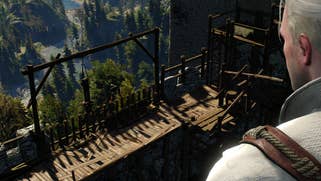
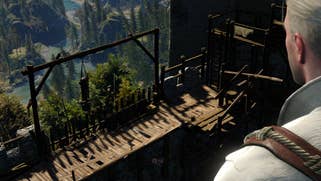
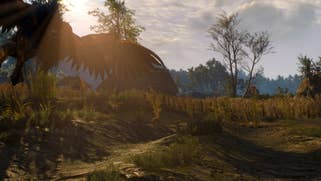
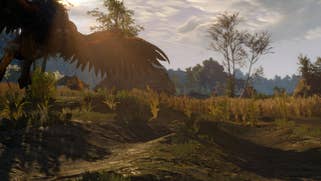


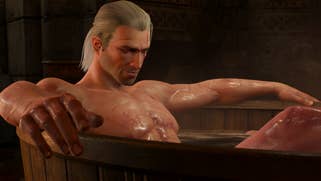
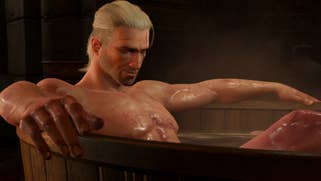
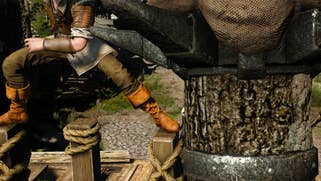
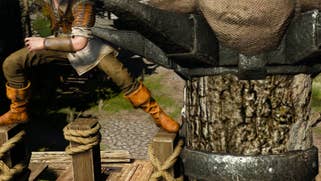
Throw a lot of PC horsepower at the game and you do reap some benefit - and without checkerboarding, there is a big difference in sharpness compared to a native presentation. Image quality clearly benefits, but PS4 Pro's output is still remarkable given the limited GPU power available. However, Pro's memory constraints see no upgrade in texture quality - an area where the PC shines. Additionally, shadow resolution, draw distance and foliage density still see the PC game take point as the ideal version. Perhaps for the best, we are missing Nvidia's taxing HairWorks simulation too on Pro, which buckles performance at 4K even on today's best GPUs. All these extras are left on the table, and it makes you wonder if any one or the other will make it for the game's Xbox One X support. We'll have to wait and see, but for now, PS4 Pro hands in the best looking console version by quite a margin, even if it falls short of PC's best.
As ever, nothing comes for free, and there is a catch on PS4 Pro - these upgrades come with a side-effect in performance. It doesn't affect the game at large, and PS4 Pro operates at 30fps for the most part. However stress areas involving heavy alpha effects run worse on PS4 Pro by an obvious delta. Taking our Crookback Bog test as an example, we're looking at a divide up to five frames per second - that's 25fps versus the 30fps we get on a base PS4. Running through alpha-heavy marshes at speed, PS4 Pro clearly struggles to resolve double the pixel output of a regular PS4 with these effects overlayed. The net result is a consistent gap, and even arriving to the town at the centre, it continues to run at around 25fps.
This is a worrying turn, because as of patch 1.31 this area ran fluidly on all PS4 machines, with the Pro's boost mode ironing out further remaining issues - but now we have a step back. The other frustration is there's no way to avoid these drops on PS4 Pro by simply switching to the 1080p output mode. Given that it's super-sampling from 2160p with the same effects, the rendering load is the same either way. Put into example, running at 1080p gives the exact same 25fps reading as PS4 Pro's 4K output, leaving a big gap in performance compared to the weaker standard PS4. It's the price of increased resolution and effects, but again, it's only these intensive cut-scenes that reveal it.
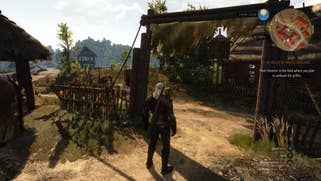
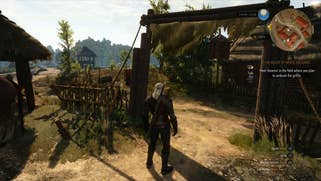
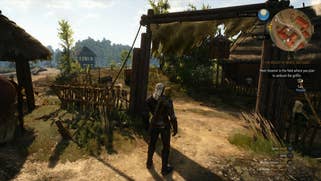
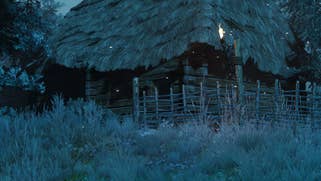

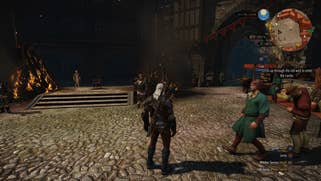
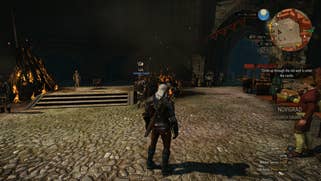
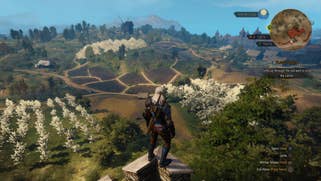
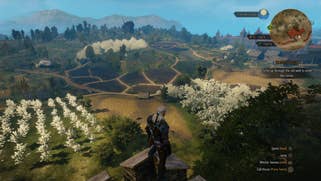
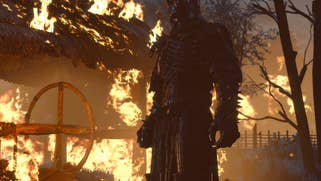
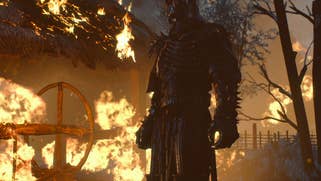
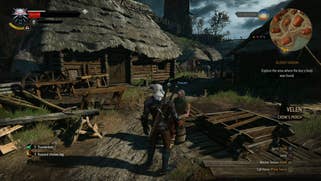
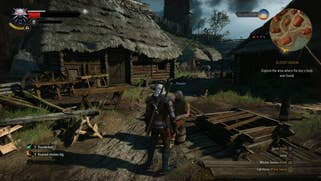
But there's an upside too in line with CDPR's claims of improved performance: CPU-intensive areas like Novigrad actually run better on PS4 Pro. A standard PS4 tends to give one-off stutters, but the number of draw calls in complex city areas along with background streaming hammers the CPU, buckling it to 25fps. Too many objects in one place and more being loaded in as we travel makes the console more apt to big frame-time hitches, but by comparison PS4 Pro gets away with a smooth 30fps output. It makes sense too; PS4 Pro's higher clocked Jaguar cores are going to have an easier ride through here, and rendering at higher resolutions has no impact.
It's a double-edged sword then. Areas that challenge GPU bandwidth drag PS4 Pro down to the mid-20s, but performance is at least ironed out in places where we suspect that the CPU was a limiting factor on the base PlayStation 4. The rest of the game is unaffected though, and it's much the same 30fps experience you'll remember, though potentially with fewer streaming hiccups on Pro.
Overall then, it's fair to count The Witcher 3's PS4 Pro support as a success. Yes, performance isn't improved across the board, but there's a lot to enjoy here: visuals are upgraded, and ultra HDTV owners are getting a great image from the machine. The timing is also auspicious - 4K patches for both Pro and Xbox One X were in development simultaneously, an example of how the arrival of Microsoft's new machine is actually good news for Sony. In a multi-platform world, the more 4K machines there are on the market, the more support both are likely to receive. Where CDPR chooses to go with the Xbox One X hardware remains to be seen, but rest assured that we'll be revisiting the game on the new Microsoft console as soon as we can.
